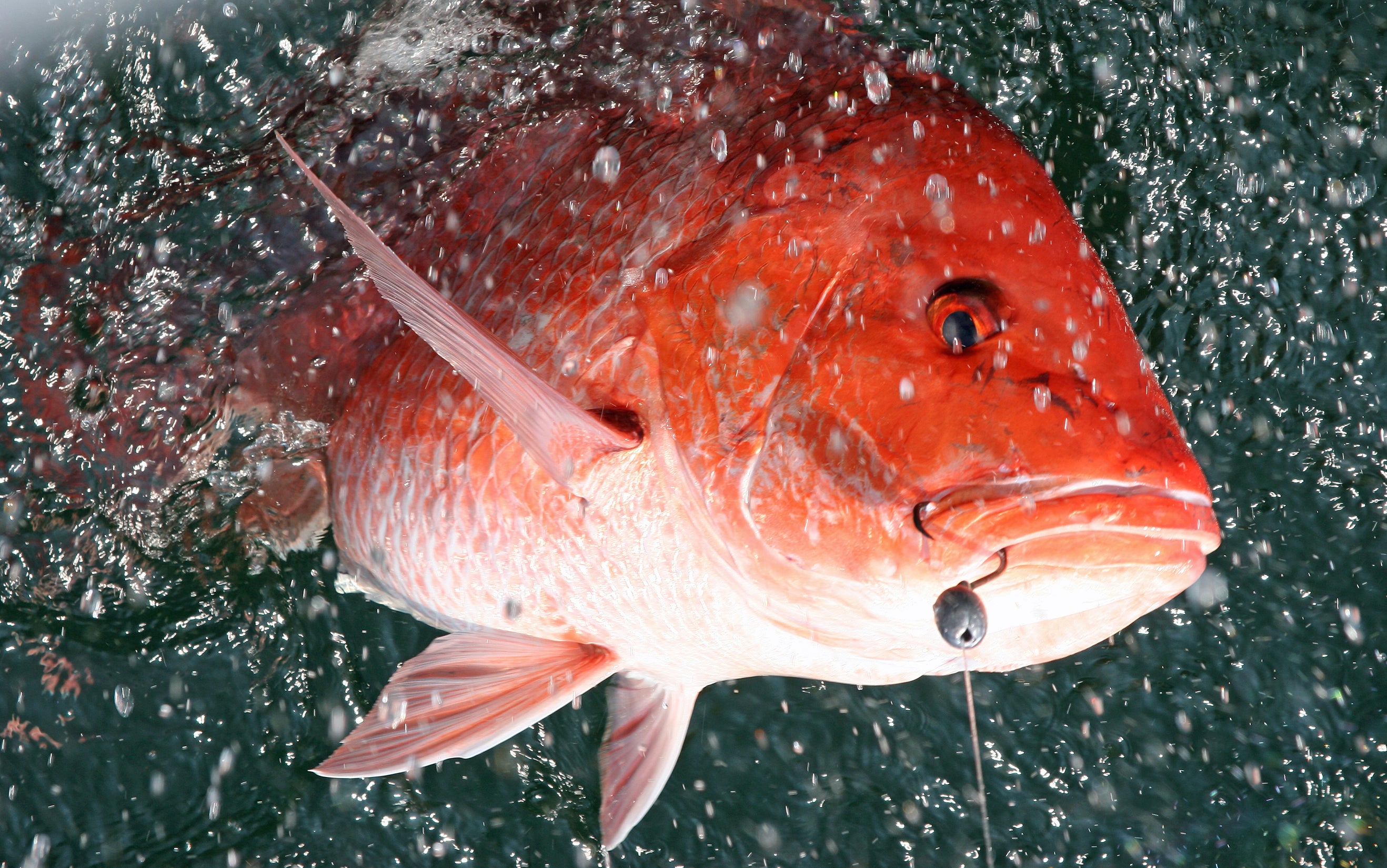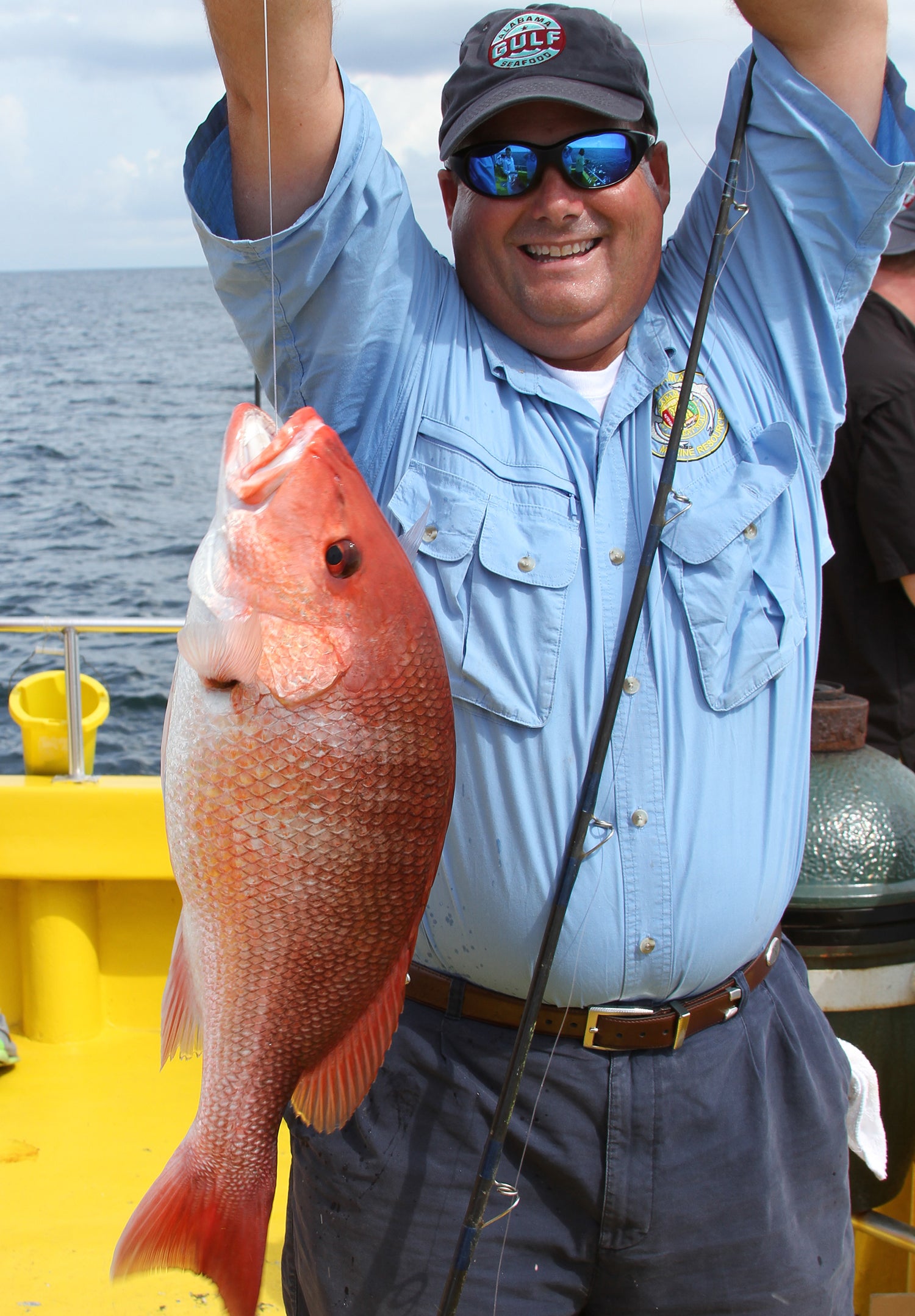By DAVID RAINER, Alabama Department of Conservation and Natural Resources
If the plan works out, Alabama red snapper anglers will have access to the prized reef fish for more days than last year’s extended season.
The plan entails exempted fishing permits (EFPs) that allow the five Gulf states to set seasons that will keep the snapper harvest within the overall quota for the recreational fishery in the Gulf.
If approved, the EFPs will be used until the Gulf of Mexico Fishery Management Council has time to go through the process to approve state management plans for the Gulf states.
Commissioner Chris Blankenship of the Alabama Department of Conservation and Natural Resources said approval for the state management plans would likely not happen before 2020, and the EFPs would be in place during the 2018 and 2019 seasons.
“We were working with (Alabama) Sen. (Richard) Shelby and talking with him last year about the possibility of Marine Resources managing the red snapper fishery in the artificial reef zones off Alabama,” Blankenship said. “We have more than 1,000 square miles of permitted reef zones, the largest in the country, and we wanted to be able to manage the fishery inside there.”
Sen. Shelby added language in the 2016 appropriations bill that allowed NOAA (National Oceanic and Atmospheric Administration) to establish a pilot program for state management in designated artificial reef zones.
“That was the genesis of the exempted fishing permits,” Blankenship said. “Alabama submitted our proposal to NOAA. They were concerned if only one state did it, it wouldn’t be fair and the states wouldn’t have the same opportunity. That’s where the idea for exempted fishing permits came from. NOAA suggested that instead of a pilot program we do exempted fishing permits for state management in each of the five Gulf states.
“Last week at the Gulf of Mexico Fishery Management Council meeting, the Council voted to approve exempted fishing permits for the five Gulf states. Although Council approval wasn’t required, the states and NOAA wanted the Council’s blessing before proceeding. The exempted fishing permits can be issued by NOAA, but the federal people and the Gulf states felt it would be best to go to the Gulf Council so they could review the permits, ask questions and make comments.”
Alabama Congressman Bradley Byrne, who has been at the forefront of the effort to improve access to the red snapper fishery, thanked the Gulf Council for supporting the EFP program.
“As I have always said, this issue is about so much more than just our fishermen,” Byrne said. “A full red snapper season is good news for the hotels, restaurants, gas stations, and other small businesses in our coastal communities. I also want to thank Senator Richard Shelby, Alabama Department of Conservation and Natural Resources Commissioner Chris Blankenship, and our other Gulf Coast colleagues for working together to ensure our fishermen and coastal communities have a full and adequate red snapper season.”
After a 30-day public comment period, NOAA will consider comments and take one of three routes – issue the permits, not issue the permits or make changes to the permits before they are issued to ensure the states don’t go over the quotas. A decision is expected in mid-April. Blankenship said the five Gulf states worked together to come up with a plan to divide the overall quota to try to minimize the chances the states would exceed the recreational fishing quota for the year.
“Alabama’s portion of the quota would give us a season very similar to what we had last year,” Blankenship said. “We thought that was a good result last year. The people really enjoyed it, and we wanted to make sure we had something at least that good this year and in 2019.
“I feel confident from the Gulf Council reaction that the plan was prudent and had a lot of support. More important, in a letter from Chris Oliver, head of the National Marine Fisheries Service (NMFS), in response to a letter of support from Congressman Byrne, Oliver stated he and NOAA were very supportive of the in-state management of the red snapper fishery. The leadership at NOAA is supportive, the Gulf Council is supportive and the states are supportive; we feel it was a well-reasoned plan for these exempted fishing permits for the next two years.”








